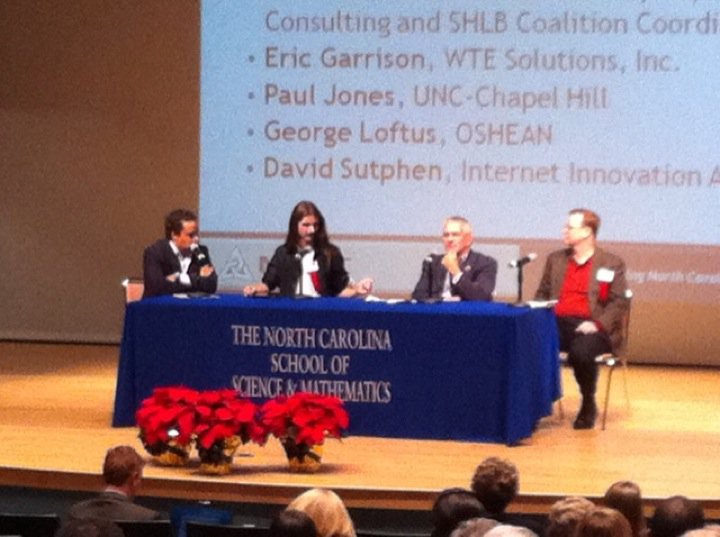Seth Johnson (in Silicon Angle story with full Scribd post), David Reed, David Weinberger and others (listed below) have made a strong response to the FCC’s notice of proposed rulemaking, “Further Inquiry into Two Under-developed Issues in the Open Internet Proceeding.” The group of IT luminaries answer with their own On Advancing the Open Internet by Distinguishing it from Specialized Services. Not only worth the read but essential to our communications, commercial, and social futures.
The response is (so far) signed by:
(Affiliations are listed for identification purposes only.)
Bill St. Arnaud, Green IT Consultant, St. Arnaud-Walker and Associates Inc
Scott Bradner, Harvard University, long time IETF and ISOC participant,
ARIN board member and Network World columnist
Dave Burstein, Editor, DSL Prime
Kenneth Carter, Senior Research Fellow, Columbia Institute for Tele-Information, Columbia Business School
Robin Chase, CEO Meadow Networks, co-founder and former CEO of Zipcar, member, Dept of Commerce National Advisory Committee for Innovation and Entrpreneurship
Gordon Cook, Editor and publisher of The Cook Report on Internet Protocol, Technology, Economics and Policy since 1992
Bob Frankston, Telecommunications Analyst and Visionary
John Furrier, Founder Broadband Developments, Inc; and Founder Editor of SiliconANGLE.com
Gene Gaines, Gaines Group, telecommunications engineer, Open Internet activist
Robert Gregory, BSEE UCB, I.T. Director for a non-profit human services agency, and BSD, open source and IP network evangelist since 1980.
Dewayne Hendricks, CEO, Tetherless Access
Paul Hyland, CTO, Digital Operations, Education Week; member, USACM Council
David S. Isenberg, Ph. D., Principal Prosultant(sm), isen.com, LLC, former Senior Advisor to FCC Omnibus Broadband Initiative, and Author, “Rise of the Stupid Network”
Seth P. Johnson, Information Quality Specialist
Paul Jones, ibiblio.org and University of North Carolina
Dean Landsman, Digital Strategist/Connectivity Consultant. President: Landsman Communications Group
Jon Lebkowsky, President, EFF-Austin
Andrew Lippman, Sr Research Scientist, MIT Media Lab, associate director
Michael Maranda, Co-Founder, Chicago Digital Access Alliance
Sascha Meinrath, Director, Open Technology Initiative, New America Foundation; Co-Founder, MeasurementLab.net
John T. Mitchell, Interaction Law
Steve Mossbrook, Founder and CEO, Wyoming.com
Bruce Perens, co-founder of the Open Source movement in software
Tim Pozar, Telecommunications Engineer and Community Broadband Activist
David P. Reed, Ph.D., Participant in the original design of the Internet Protocols and well-known expert in network and computing architecture
Clay Shirky, Interactive Telecommunications Program, New York University
Jay Sulzberger, Consulting statistician
Robb Topolski, Adjunct Technologist, Open Technology Initiative, New America Foundation
Brough Turner, Founder, netBlazr Inc., co-founder & former CTO of NMS Communications and of Natural MicroSystems, open spectrum advocate and lecturer on 3G/4G wireless
John G. Waclawsky Ph.D., Technology Advisor and Consultant, Chicago and Washington
David Weinberger, Ph.D., Senior Researcher at Harvard Berkman Center for Internet & Society







.jpg)



Recent Comments